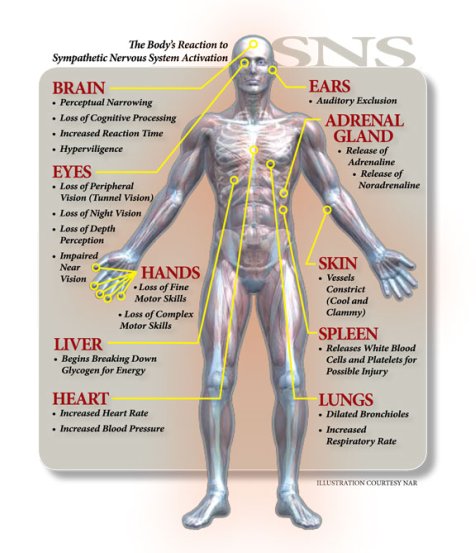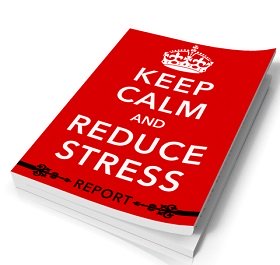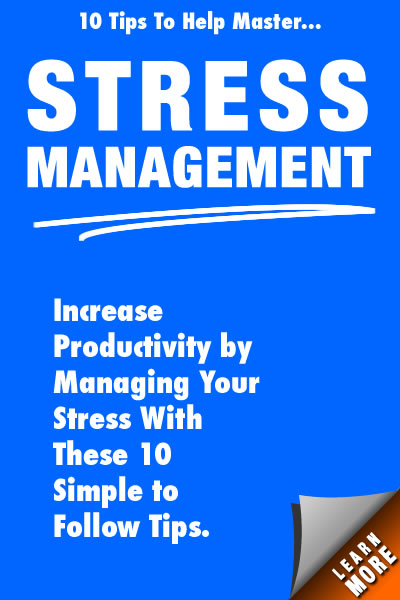The Physical Effects of Stress How the Body Reacts
The physical effects of stress are directly correlated to the power of our behavioral response to the stress. We are including this article as a reference so that you become aware of the ways your body responds to the stressors that can be encountered on a daily basis.
Stress can affect your health in different ways. The mind and body are directly linked, and the interaction between them can produce varying physical changes in our bodies. Our brain notices a stressor, a physical reaction is triggered, and the reaction can lead to further emotional reactions and mental and physical damage.
Stress and tension headaches are often connected. The headache you experience is a physical response to excessive stressors. High blood pressure is another example of how stress can have damaging consequences. The physical effects of stress can add to health related disorders. How does this happen? Let’s look at how the body reacts to stress.
Stress is a natural response your body has to external and internal events that you perceive as threatening. Although this was a helpful response when our ancestors were being chased by wild and dangerous animals, now the physical effects of stress can be harmful to your health. Stress has widespread effects on all of your body's major systems.
When you feel stressed due to a perceived threat, your body reacts in very specific ways. You begin running in "fight or flight" mode because stress hormones are released into your body. Situations perceived as dangerous will trigger automatic responses through two mechanisms: the nervous system and the endocrine system. You can see how the physical effects of stress are set in motion.
The main part of the brain handling the emotions of stress is known as the limbic system. It is set into motion when you perceive a threat. The network of endocrine glands begin to react.
The adrenal gland, found atop the kidneys releases the hormone, cortisol, which makes its way to the brain through the bloodstream. Adrenalin, dopamine, noradrenalin, and endorphins also are released into your bloodstream, producing a wide variety of effects. These hormones increase your energy levels, speed up your heart rate, accelerate your blood flow, heighten your brain activity, produce rapid breathing, and slow down digestion. All of your energy reserves are shifted from regular body functions to functions that will help you survive the stressful situation.
The nervous system relays almost instantaneous electrochemical signals from sensory nerves to the brain, which determines that a dangerous situation is present and sends signals via the autonomic sympathetic nervous system to other systems in the body to react to the danger.
The effects of stimulation by the sympathetic nervous system and the adrenal hormones are similar and ensure that extra oxygen and glucose are made available to the organs which will respond directly to the danger: the brain, the skeletal muscles and the heart. These physical effects of stress are initially for survival—readying the body for fast action. Circulation is increased through dilation of the blood vessels and increased blood pressure. Breathing becomes more rapid and shallower. In the liver, cortisol converts glycogen to glucose, this then, is released into the bloodstream. The digestive system is shut down, and blood is diverted away from the skin and stomach. Do you notice that initially when stressed, you lose your appetite?
Your adrenal glands release ephinephrine and other hormones into the bloodstream to help with this emergency situation. With an increase in your breathing, blood pressure and your heart rate, there is more oxygen in the blood nourishing the brain and muscles. They have the energy needed to fight or flee. As your body becomes ready to handle the threat, your senses become keener, your memory more focused, and you are less sensitive to pain.
With these initial physical effects of stress, other hormones shut down such functions as growth, reproduction and immune systems which are not used in handling an emergency. With your mind and body in this temporary state of alert, you are now prepared to respond to the threat.
The physical effects of stress follow a specific sequence in the way the body reacts. When the perceived threat is over, your brain activates a neutralizing course of action that releases a different group of biochemicals throughout your body to reverse the production of cortisol. Attempting to bring you back into balance, your brain seeks "homeostasis," that state of metabolic equilibrium between the stimulating and the tranquilizing chemical forces in your body.
If the stressful condition is not resolved quickly and becomes long term, or chronic stress, the adrenal glands increase their output of the hormone cortisol. This releases fatty acids into the blood to provide extra reserves of energy, but also has the effect of suppressing the immune system, leaving the person susceptible to a wide range of ailments that are the recognized symptoms and physical effects of stress. Unless the body is regularly allowed to relax and undo the build up of tension, the cumulative effect can result in exhaustion and serious long-term illnesses.
|
To fully understand how the body responds to stress and become aware of how to reverse these negative effects of stress on your body, pick up a copy of Robert Sapolsky's Why Zebras Don't Get Ulcers
The author explains in a straight-forward manner, the anatomy of human stress-response. He then offers insights into how these responses can be controlled because over time, so that there is less permanent damage to the body. |
 Why Zebras Don't Get Ulcers, Third Edition |
How does stress affect health? Chronic long-term stress can have a negative effect on your health. To monitor the effects, notice what these physical symptoms of stress may be telling you. Use these messages as clear warnings to avoid potential serious health problems. The body is in a constant state of readying for a threat and loses its ability to recover. Find ways to relieve these effects because your body is warning you of detrimental outcomes. Stress related illnesses can develop if you live with constant tension and life pressures. Take a look at your current situation and ease the pressures wherever possible. Don't let the effects of stress on health become problematic. Lifestyle modification is a successful coping mechanism so that the physical effects of stress do not permanently disrupt your body systems from working properly.
Negative Emotional Triggers Can Disrupt A Weight Loss Plan
Join Calm Starts Here, and receive FREE How to Get a Good Night's Rest and Stop Worrying.
Add a Little Yoga in Your Life.
A Workbook to Boost Your Midlife Success!
Share this Page on SheToldMe.com
Become a FaceBook Fan










